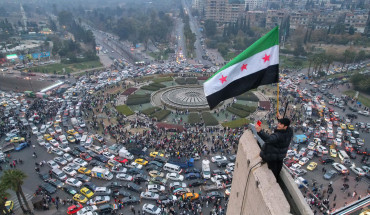Iran’s President Hassan Rouhani has sent a letter to Pakistani Prime Minister Nawaz Sharif, calling on Islamabad to prosecute perpetrators of an attack that killed 10 Iranian troops along the Iranian-Pakistani border on Wednesday. A militant group called Jaish al-Adl claimed responsibility for the attack. According to Iran’s Tasnim News Agency, Rouhani blamed the Pakistani government’s “inaction” and “lack of necessary measures” for repeated attacks originating from Pakistan against Iranian border guards. Iran’s Police said the security personnel were killed by long-range weapons fired from Pakistani soil. The Iranian president emphasized that the Pakistani government had to bring the culprits to justice in order to “maintain and boost good and brotherly relations” with Iran. He also complained that despite Pakistani officials’ pledges, Pakistan-based terrorist groups repeatedly carry out attacks against Iranian security forces along the shared borders.
Comment: It is not the first time that Pakistan-based militant groups carry out attacks inside Iran. But the latest killing of Iranian border guards appears to have seriously strained ties between Tehran and Islamabad. The Iranian foreign ministry summoned Pakistani ambassador to protest the cross-border attack. Separately, Iran’s Foreign Ministry Spokesman Bahram Ghassemi said: “The Pakistani government should be held accountable for the presence and operation of these vicious groups on its soil.”
Iran’s Sistan and Baluchestan, one of the country’s most impoverished province, has been a hotbed for low-intensity Sunni insurgency for a long time. It shares borders with Pakistan and Afghanistan and is a key drug trafficking route in the region. The Iranian government considers the restive region a top security priority. Hundreds of Iranian security forces have been killed in the fight against insurgents and drug smugglers in the province over the past decade. And the emergence of the so-called Islamic State in neighboring Afghanistan and Pakistan and its potential spillover into Iran’s Sunni-majority southeast has forced the Iranian government to pay more attention to the once-neglected region. Both the I.R.G.C.’s ground forces and the Basij units have conducted large-scale military exercises in the southeastern region in the past one year.
The Middle East Institute (MEI) is an independent, non-partisan, non-for-profit, educational organization. It does not engage in advocacy and its scholars’ opinions are their own. MEI welcomes financial donations, but retains sole editorial control over its work and its publications reflect only the authors’ views. For a listing of MEI donors, please click here.













